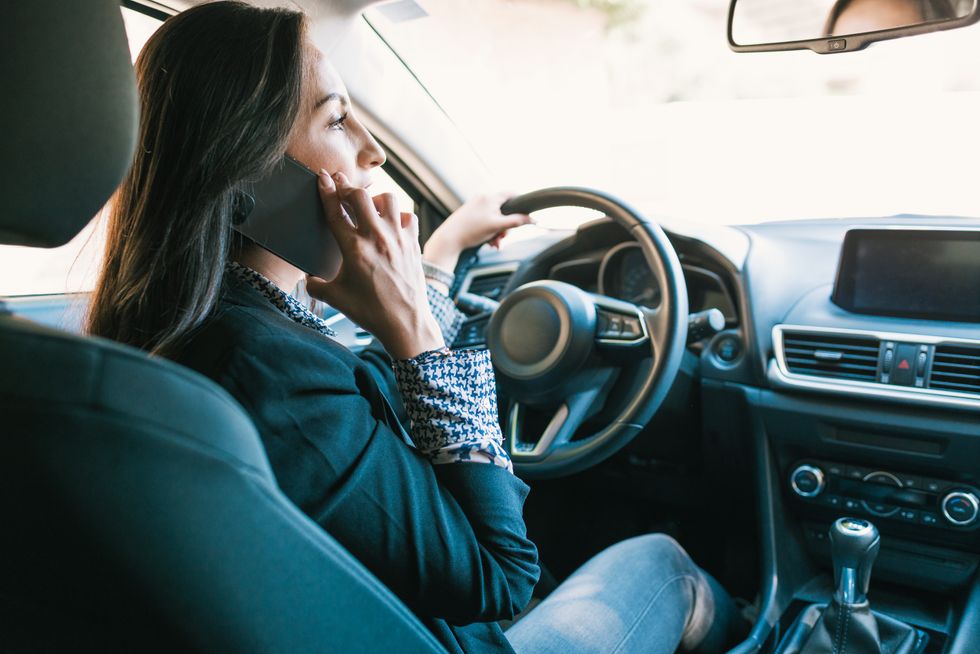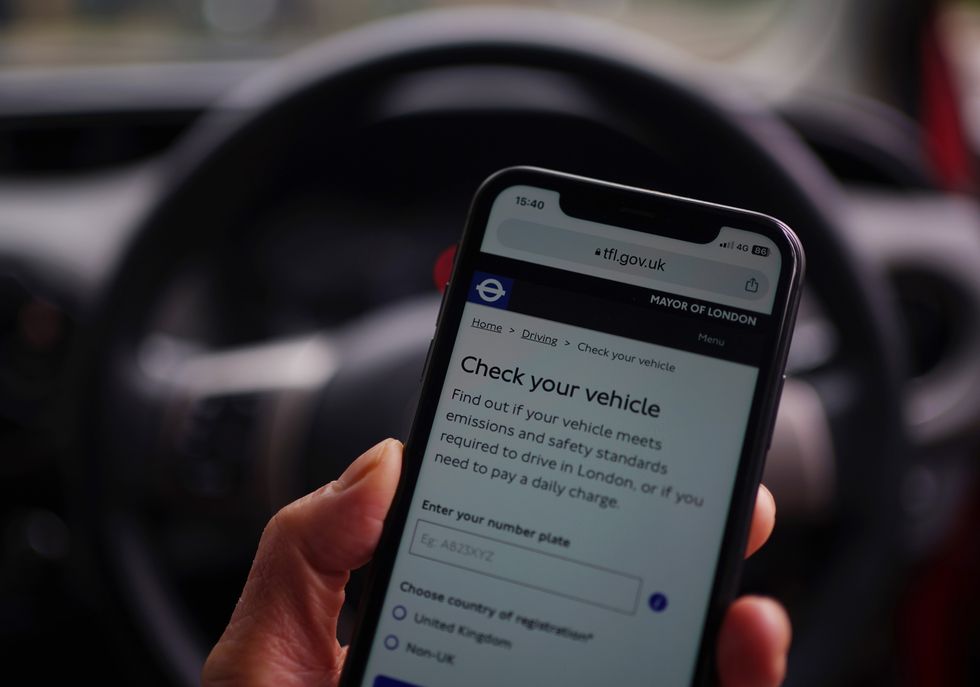Drivers warned that hands-free tech is just as dangerous as using a mobile phone - 'Can increase crash risk'

The project raises awareness of the risks that hands-free devices pose
Don't Miss
Most Read
A new campaign has highlighted the unsafe nature of using a hands-free device in a vehicle, citing it as equally risky as using a mobile phone when driving.
The project, called “We need to talk about hands-free”, aims to raise awareness of the risks that hands-free devices still pose when at the wheel.
The research was shared with the National Police Chiefs’ Council which said it will begin cracking down on drivers who are distracted by the hands-free option in cars.
While using a mobile phone with hands-free capabilities is not illegal, research from the road safety organisation shows how the technology is no safer than using phone.
Do you have a story you'd like to share? Get in touch by emailing motoring@gbnews.uk

A campaign has highlighted the unsafe nature of using a hands-free device in a vehicle
|GETTY
Following the project, police officers who viewed the key findings said their attitudes to the safety of legal hands-free mobile phone use by drivers dramatically changed.
Over 88 per cent of officers reported that, in future encounters with phone-using drivers, they would take time to explain the dangers of all phone use, not just hand-held use in vehicles.
Having already sparked interest from the police, Chief Constable Jo Shiner, the National Police Chiefs’ Council lead for roads policing, said she is urging drivers to carefully consider how dangerous hands-free technology can be.
She said: “I welcome any research which progresses our understanding of risk and how it can be removed from our roads.
“This is a positive step forward in terms of preventing harm and reducing fatal and serious collisions. This work should be applauded and carefully considered by everyone who uses the roads.”
Ruth Purdie, chief executive of The Road Safety Trust, which funded the research, explained how evidence from the findings showed the danger hands-free devices have.
She commented: “The cognitive distraction can increase crash risk, reduce hazard detection, and lead to poor situational awareness.
“Therefore, it is vital, as this report highlights, that police officers are not recommending hands-free as a safe alternative to illegally using a hands-free device.”
Purdie added how she hopes this project could shine a light on the issue and provide officers the guidance they need when encountering offenders.
Elsewhere, Gemma Briggs, Professor of Applied Cognitive Psychology at the Open University, remarked how the research emphatically demonstrates the danger of hands-free phone use.
She said: “The problem is not many people realise this, and many resist these research findings.
“This project has highlighted the importance of the advice that is given being focused on safety, not just legality.”
LATEST DEVELOPMENTS:
- Fiat warns electric car market is in 'real jeopardy' as brand supports the return of EV grants for drivers
- Older motorists urged to make 'tweaks' to their driving habits amid calls for new tests when they reach 65
- New Dacia Spring to be UK's cheapest electric vehicle with prices set to start from £16,000

'Our project means that more officers will now give advice that will keep drivers safe'
|PA
Dr Helen Wells, senior lecturer in criminology at Keele University, who was also involved in the research, explained that when a police officer stops someone for using their mobile phone illegally they have an opportunity to give advice to a safe or unsafe driver.
“Our project means that more officers will now give advice that will keep drivers safe, not just keep them out of trouble with the law,” she added.











